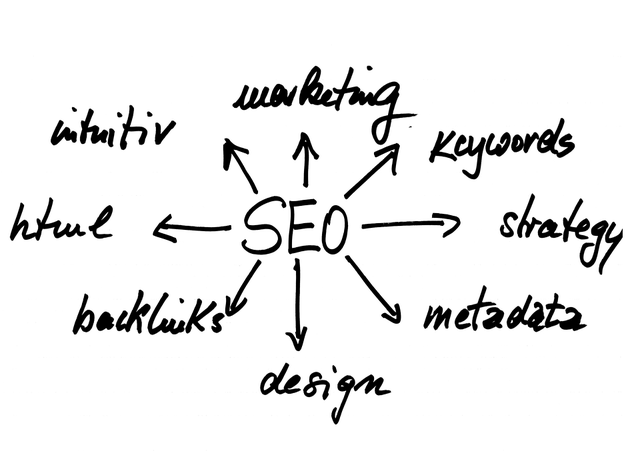Off-Page SEO audits are crucial for optimizing a brand's digital footprint beyond website content, focusing on link building, social media engagement, and online reputation management. These audits reveal external factors influencing search engine rankings, such as high-quality backlinks from authoritative sites and positive online reviews, which enhance local signals. By analyzing backlink quality, quantity, and sources, along with social media presence and competitor strategies, businesses can effectively navigate the complex web of Off-Page SEO to improve online visibility, attract organic traffic, and meet industry standards. Tools like Google Search Console and Ahrefs, combined with manual methods, are essential for this process. Social media engagement is a powerful tool for enhancing Off-Page SEO through high-quality content sharing and influencer collaborations. After the audit, prioritize building quality backlinks and optimizing social media presence to achieve better SEO results.
Off-Page SEO audits are crucial for unlocking a website’s full search engine potential. This comprehensive guide delves into the intricacies of these audits, providing a step-by-step approach to enhance your online visibility. We explore external factors influencing rankings, from backlinks and social media mentions to domain authority. Learn key components of an effective audit, discover powerful tools, and understand the nuanced balance between quality and quantity in backlinks. By the end, you’ll be equipped with strategies to significantly improve your Off-Page SEO performance.
Understanding Off-Page SEO Audits: A Comprehensive Overview

Off-Page SEO audits are a critical process that evaluates the external factors influencing your website’s search engine rankings. It goes beyond your site’s content and structure, delving into the digital footprint your brand creates elsewhere on the web. This audit examines key areas like link building, social media presence, and online reputation management, which collectively contribute to your site’s authority and visibility in search results.
Understanding these factors is essential in today’s competitive digital landscape. A thorough Off-Page SEO audit helps identify strengths and weaknesses, revealing opportunities for improvement. It allows businesses to navigate the complex web of external signals that search engines use to rank websites, ultimately enhancing their online presence and driving more organic traffic.
The Role of External Factors in Search Engine Rankings

External factors play a significant role in shaping search engine rankings, especially in the realm of Off-Page SEO. These factors are beyond the control of website owners but can greatly impact how visible a site is to search engines like Google. Social media presence and engagement, for instance, can drive organic traffic to a site, signaling to search engines that it’s an active, reputable source worth ranking higher. Quality backlinks from authoritative websites also act as votes of confidence, indicating to search algorithms that the linked content is valuable and trustworthy.
Additionally, local SEO considerations, such as online reviews and local business listings, can influence rankings for businesses with physical locations. Online directories and industry-specific platforms are external resources that search engines use to gather information about businesses. Positive reviews and consistent NAP (Name, Address, Phone number) citations contribute to a stronger local signal, enhancing a site’s chances of securing higher rankings in relevant local searches.
Key Components of an Effective Off-Page SEO Audit

An effective off-page SEO audit involves a comprehensive analysis of factors beyond your website’s control but significantly impact its search rankings. This process should scrutinize the quality and quantity of backlinks, assessing their sources, anchor text diversity, and relevance to your niche. By evaluating these elements, you can identify toxic links that may harm your site’s reputation and replace them with high-quality, authoritative ones.
Additionally, an audit should consider social media presence and engagement, as this plays a crucial role in brand visibility and user interaction. Analyzing competitor strategies is also vital; understanding their off-page tactics allows you to gain insights into effective practices and identify gaps where your strategy can be improved. This holistic approach ensures that your off-page SEO efforts align with industry standards, fostering better search engine visibility and organic traffic growth.
Tools and Techniques for Conducting a Thorough Audit

Conducting a comprehensive off-page SEO audit involves leveraging a suite of tools and techniques to gain deep insights into your website’s online visibility. Start by utilizing industry-standard SEO tools like Google Search Console and Ahrefs to analyze backlinks, identify broken links, and assess domain authority. These platforms offer detailed reports on referring domains, backlink profiles, and keyword rankings, providing crucial data for strategic decision-making.
For a more nuanced approach, incorporate manual techniques such as competitor analysis, social media monitoring, and local business listings checks. Examining competitors’ backlink profiles can reveal valuable insights into successful off-page strategies. Social listening tools help track brand mentions, customer reviews, and online conversations around your industry, while ensuring you’re optimized for relevant local directories enhances your site’s discoverability.
Analyzing Backlinks: Quality vs. Quantity

When conducting an off-page SEO audit, analyzing backlinks is a crucial step in understanding your website’s visibility and authority. While quantity matters, it’s essential to focus on quality as well. High-quality backlinks from reputable sources carry more weight with search engines like Google. These links act as votes of confidence for your site, indicating its credibility and relevance within the context of the link’s anchor text and the linking domain’s authority.
In contrast, low-quality backlinks from irrelevant or spammy sites can actually harm your rankings. These links often signal to search engines that your site is not a valuable resource, leading to a lower position in search results. Therefore, an effective off-page SEO strategy should aim for a balanced approach—acquiring both sufficient quantity and high-quality backlinks to enhance your website’s authority and visibility online.
Exploring Social Media's Impact on SEO Performance

In today’s digital era, social media has become an integral part of any successful off-page SEO strategy. The online conversations and interactions that take place on platforms like Twitter, Facebook, Instagram, and LinkedIn directly influence a brand’s visibility and search rankings. High-quality, engaging content shared across these channels can drive organic traffic to a website, improving its overall SEO performance. Influencer collaborations, user-generated content, and regular interaction with the target audience are just some of the ways social media can enhance off-page SEO efforts.
Moreover, social media signals have been proven to play a significant role in search engine algorithms. When a brand consistently generates buzz and positive sentiment on social platforms, it reflects well on its online reputation and authority. This, in turn, signals to search engines that the brand offers valuable content and deserves higher rankings. By leveraging social media effectively, businesses can indirectly impact their SEO performance and establish a stronger online presence.
Strategies to Improve Off-Page SEO After the Audit

After conducting a thorough off-page SEO audit, it’s time to strategize improvements. One key strategy is to enhance your link building efforts by focusing on high-quality, relevant backlinks from reputable sources. This can be achieved through guest blogging, where you contribute valuable content to influential blogs in your niche, thereby earning links back to your site. Additionally, reaching out to other websites for collaboration opportunities or partnerships can increase the number and quality of incoming links.
Another effective approach is optimizing your social media presence. Leverage platforms relevant to your target audience to share engaging content that naturally draws links and mentions. Regularly interact with influencers and industry leaders to build relationships that may lead to valuable backlinks. Furthermore, utilizing tools for competitor analysis can help identify successful off-page strategies employed by others in your industry, providing insights for adjustments and improvements to your own Off-Page SEO tactics.
